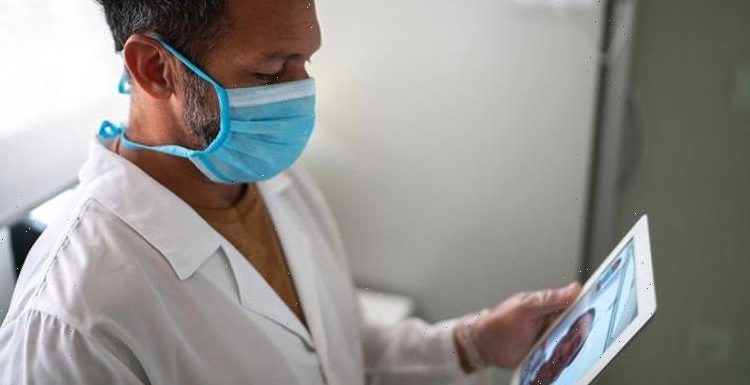
Sajid Javid was not 'transparent' about Omicron data says expert
We use your sign-up to provide content in ways you’ve consented to and to improve our understanding of you. This may include adverts from us and 3rd parties based on our understanding. You can unsubscribe at any time. More info
It was announced that thousands of Covid patients in England could also be treated at home with remote monitoring of their oxygen levels. Professor Stephen Powis, NHS England’s medical director, told The Sunday Times that health services were on a “war footing” down south. Now, the NHS is hoping that Covid patients being treated at home will allow more free beds for patients who would otherwise be waiting in ambulances and in A&E.
Patients on virtual wards can still be treated by getting oximeters that fit on their fingers, and health chiefs have reassured that this won’t jeopardise the quality of the treatment they receive.
Prof Powis said the new treatment will let thousands of people receive “the same care they would in hospital but from the comfort of their own home”.
He added: “This is better for patients, it is better for their families and it is better for the NHS, as it limits the spread of the virus, which we know at the minute is rising exponentially.
“This approach has been shown to provide safe care without the need for hospital admissions.
“The virtual wards will be used for patients who turn up at hospital, or call an ambulance, and are found to need care but not hospital treatment.”


Dr David Chung, a Scottish-based member of the Royal College of Emergency Medicine, thought that it would help people who were not too ill did not have to go to hospital for assessment.
But he told BBC Scotland: “What we do know is that once your oxygen levels go below a certain level you are going to need the treatments that we have developed over the past year.
“You are going to need oxygen and you are going to need steroids. They have a definite beneficial effect.”
The Scottish government have argued that copying the NHS England initiative was an option that would be thought about.
A spokeswoman said: “The health secretary has been very clear that this will be the most difficult winter in NHS history and the spread of the Omicron variant will increase the pressure on our health service.
“We are in regular contact with boards and are monitoring the situation closely and will plan and respond as necessary.

“We are considering all options that support increased capacity in hospitals to ensure safe treatment of patients.”
British ministers have been warned that delaying new Covid restrictions until after Christmas could cause millions of new infections and would significantly ramp up the pressure on the NHS.
Professor John Edmunds, who sits on the government’s Scientific Advisory Group for Emergencies (Sage), said it could even be the case that Britain had up to 400,000 Omicron infections yesterday and that the doubling time was thought to be around two days.
DON’T MISS
First Briton to die with Omicron was unvaccinated conspiracy theoriest [REVEAL]
Pfizer’s effectiveness against Omicron variant unveiled in new study [REPORT]
Poland lashes out at Germany for orchestrating EU crisis [INSIGHT]


He warned that the NHS could be close to breaking point.
He said: “We’re close to the point where there already may be enough cases in the system to overwhelm the NHS.
Hospitals are preparing for a boost in admissions due to the influx of Omicron cases.
Sage said it is expecting between 1,000 and 2,000 hospital admissions a day in England by the end of 2021.
These kinds of numbers have not been seen since last February when Britain was battered by a significant wave of the pandemic.
Source: Read Full Article